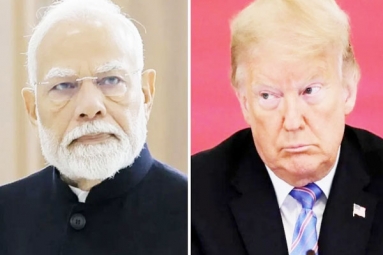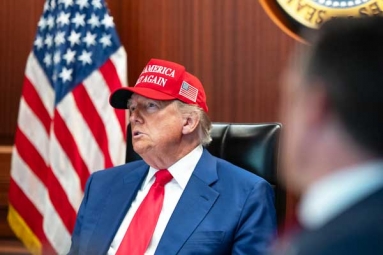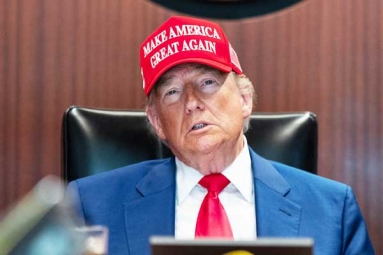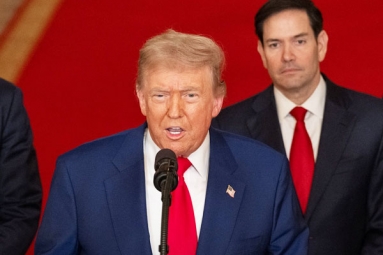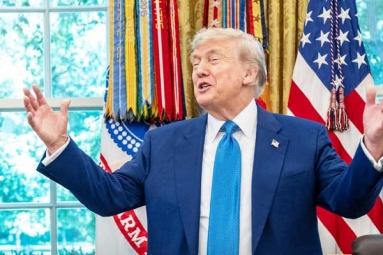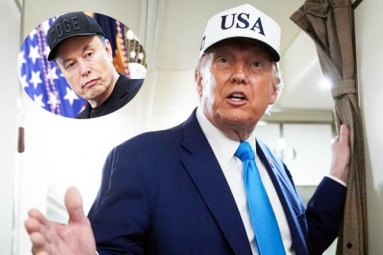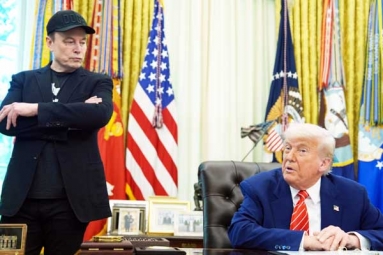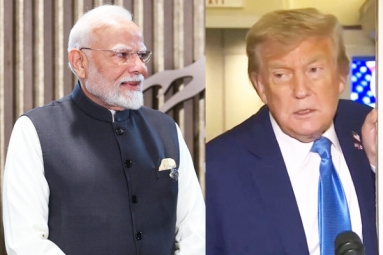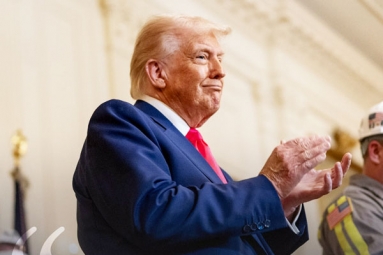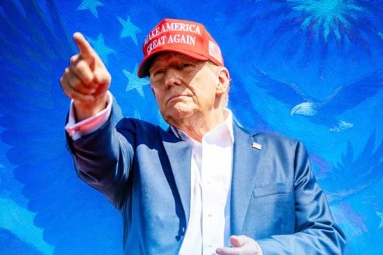
(Image source from: PBSNewsHour)
Amid ongoing uncertainty surrounding US President Donald Trump's intentions regarding his proposed "Liberation Day tariff," White House representative Karoline Leavitt confirmed on Monday that there will be no exemptions for reciprocal tariffs. During her remarks, she highlighted the tariffs levied on American goods by other countries, stating that these "unfair trade practices" must come to an end. This announcement coincides with President Trump's plan to unveil a series of reciprocal tariffs on April 2, a day he has designated "Liberation Day" for the nation.
Leavitt remarked, "The objective for Wednesday is a country-specific tariff, along with certain sector-specific tariffs. The President has expressed his determination to put these into effect, and I will leave it to him to reveal the details." She further emphasized the notion that "it's time for reciprocity." While presenting a document detailing significant tariffs imposed by the European Union, India, Japan, and Canada, she stated, "If you examine the unfair trade practices we face, there’s a 50 percent tariff from the European Union on American dairy products, a staggering 700 percent tariff from Japan on American rice, a 100 percent tariff from India on American agricultural items, and nearly 300 percent from Canada on American butter and cheese."
According to her, this situation renders it nearly impossible for American goods to penetrate these markets, resulting in the loss of jobs and business opportunities for many Americans over the years. Countries often impose substantial tariffs on foreign imports to safeguard critical industries within their own economies. The reciprocal tariffs proposed by President Trump seek to align with the higher tariffs of other nations on specific products and to counteract non-tariff barriers that disadvantage US exports. The Trump administration has maintained that this tariff disparity is inequitable for American businesses and professionals.
Leavitt asserted that these new tariffs championed by Trump would instigate "historic change" in the trading dynamics of the United States. She remarked, "Sadly, these nations have been exploiting our country for an extended period, and it’s clear they do not value the American worker." Additionally, on Monday, the Trump administration published an extensive list of policies and regulations from foreign nations deemed as trade impediments. This was released two days ahead of the proposed imposition of reciprocal tariffs on global trading partners. The annual National Trade Estimate Report from the Office of the U.S. Trade Representative details average tariff rates applied by trading partners and identifies non-tariff barriers that cover a variety of issues, including burdensome food safety protocols and requirements for renewable energy as well as public procurement regulations.
“No American President in contemporary times has acknowledged the extensive and detrimental foreign trade obstacles faced by American exporters as President Trump has,” stated US Trade Representative Jamieson Greer. Greer further remarked, “This administration, under his direction, is actively striving to tackle these inequitable and non-reciprocal practices, aiming to restore fairness and prioritize the interests of dedicated American businesses and workers in the global marketplace.”
The influence of the 397-page report on Trump's plans for reciprocal tariffs remains uncertain. A significant portion of the identified trade barriers consists of technical challenges or governmental regulations that impede some U.S. exports. Examples include delays in the European Union’s approvals for genetically modified crops and restrictions on agricultural imports that contain residues of certain pesticides.
The report pointed out a new EU mandate requiring a minimum volume of post-consumer recycled material in plastic packaging, suggesting it could create "unjustified barriers to US exports," indicating that the U.S. would engage with the EU regarding the implementation of this rule. It also brought attention to enduring trade disputes, like Canada's “supply management” system for its dairy, poultry, and egg sectors, which impose production limits and high tariffs, with out-of-quota tariffs on cheese reaching 245 percent and butter at 298 percent. Moreover, it noted that the application of VATs in several countries, including Argentina, Mexico, and the United Arab Emirates, presents additional challenges for U.S. imports. The report asserted that China's utilization of VAT rebates to promote exports of specific products functions as a form of subsidy.
(Video Source: PBS NewsHour)






